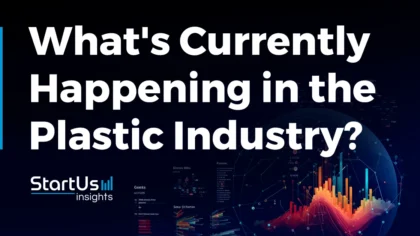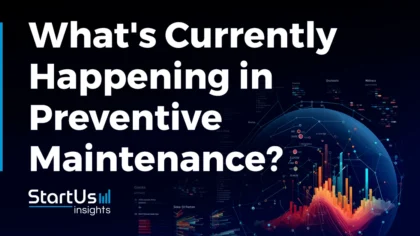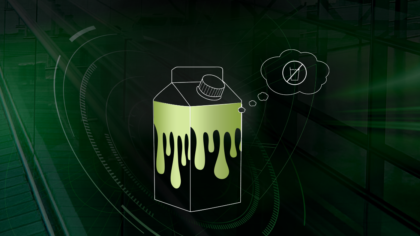Accelerate Productivity in 2025
Reignite Growth Despite the Global Slowdown
Did you know that by 2050, our seas may contain more plastic by weight than fish if current trends in plastic production and waste management continue? This alarming prediction is a wake-up call for corporations, inventors, and legislators alike, as well as an environmentalist’s worst nightmare. Recent quarterly trends in the plastics industry highlight a shift towards sustainability amidst regulatory challenges and innovation. From the latest industry events to important partnerships in the field, this quarterly plastic industry news brief for January, February, and March 2024 provides a comprehensive snapshot of what is happening in the global plastic industry today.
Key Takeaways
- Increased Recycling Efforts: Notable growth in U.S. plastic recycling and Australia’s largest PET recycling facility demonstrate a sustainable shift.
- Corporate Environmental Initiatives: Companies like LyondellBasell and Wisewell are creatively repurposing plastics, while Lidl GB and Coca-Cola focus on sustainable packaging.
- Regulatory Push for Sustainable Practices: From Australia’s levy on virgin plastics to Canada’s federal plastics registry, global regulatory actions are spurring environmental accountability.
- Innovation in Plastic Alternatives: Developments like UV-biodegradable plastics and plastic-free packaging solutions signify a transformative approach in material science.
- Navigating Regulatory and Market Changes: Businesses adapting to single-use plastic bans and evolving regulations, with a global trend towards stricter waste management.
- Short-Term to Long-Term Impacts: Immediate need for businesses to adapt to changing consumer preferences and new regulations. Anticipated surge in demand for recycled and alternative materials, requiring new equipment and processes in the mid-term. The future plastic economy will hinge on sustainable practices and circular economy principles.
How We Researched and Where this Data is from
This article is fueled by insights from the StartUs Insights Discovery Platform, a comprehensive resource tracking more than 3.7 million startups and scaleups globally. Our platform monitors over 20,000 technology trends, covering 100K feeds across various industries.
For this piece, we’ve leveraged the platform to analyze 1000 of the most recent and impactful news evolving around the plastic industry. Further, our platform allows you to dig deeper into plastic industry and investigate other topics based on your preferences. Interested in exploring the latest news, developments, innovations, and breakthroughs relevant to your business? Book a demo with us today and discover the full potential of our platform for your strategic needs.
What’s Currently Happening in the Plastic Industry?
An Upsurge in Recycling Projects
In a sea of environmental challenges, the PLASTICS Industry Association’s recent report highlights a notable increase in the recycling of plastics in the United States. Meanwhile, Australia’s largest PET plastic bottle recycling facility has recently opened in Victoria, indicating a shift toward more sustainable practices around the continent. In a similar vein, Plastic Recyclers Europe’s proposal for unified plastic collection indicates a continental agreement on the necessity of reduced procedures.
Corporate Environmental Initiatives
In the business sector, the inventive way that LyondellBasell has repurposed marine debris into new plastics and the admirable effort of Wisewell to divert two million plastic bottles from landfills are examples of the industry’s flexibility and inventiveness. Lidl GB’s ‘Prevented Ocean Plastic’ packaging expansion and Coca-Cola’s collaboration on the Circular Plastics Case Competition are examples of a larger market trend where sustainability is becoming more than simply a trendy term but a necessity for business.
Regulatory Push for Sustainable Practices
The plastics industry is changing at the speed of a coastal storm thanks to the Regulatory Riptide Regulations. A bold step to reduce plastic pollution is the Australia Institute’s planned $1.5 billion levy on virgin plastics, while Greenpeace’s “The Big Plastic Count” 2024 initiative in the UK and Canada’s federal plastics registry are inspiring public and political action.
Businesses need to carefully manage the waves of change brought about by the bans on single-use plastics implemented in a number of places, from California’s legislative efforts to Bangladesh’s decision to ban jute. Particularly notable in this regulatory turbulence are Dubai’s ban on single-use plastics and the German government’s possible tariff on plastic packaging, which both point to a global shift towards stricter waste management.
Innovation in Plastic Alternatives
The invention of UV-biodegradable plastics, Upfield’s recyclable tub, and Sirane’s plastic-free butter wrap are examples of innovative initiatives that are redefining the material’s future. Furthermore, cutting-edge microscopic methods for tracking nanoplastics and the development of self-healing plastics are pushing the boundaries of study and hint at a time when plastics will be a part of the solution rather than the issue.
Industry and Business: Navigating Unsteady Seas
Visy’s dedication to processing plastics that are difficult to recycle and Ireland’s first plastics company to receive a MedAccred accreditation are examples of a sector that is not only adapting to change but driving it. Additional examples of the revolutionary tactics that companies are implementing are the Reuse Revolution and the removal of plastic shopping bags by a significant American retailer.
Impacts in the Short, Mid, and Long Term
Businesses need to prepare for the immediate impact of shifting customer attitude and regulatory changes in the near future. The industry should anticipate a spike in demand for recycled and alternative materials in the middle term, which will call for the purchase of new equipment and procedures. Over time, circularity and sustainability are going to be the main pillars of a redesigned plastics economy.
Leaders in business and innovation management need to take note of these advancements, making investments in research and development for sustainable materials, adjusting to new laws, and encouraging partnerships that advance circular economy principles. The road ahead is obvious: either embrace sustainability or let the winds of change carry you away from the formidable obstacles. Stay tuned for our next installment on quarterly advancements in the plastics business.
Staying informed is key to navigating its complexities and capitalizing on opportunities in the plastic sector. To keep your business ahead of the curve, use our platform to find recent developments and technologies in the plastic industry. Discovery Platform provides a condensed yet thorough overview of the latest trends and advancements for guiding your investment decisions and identifying effective collaboration opportunities.







